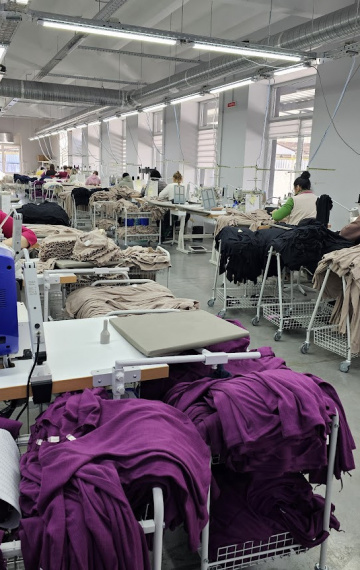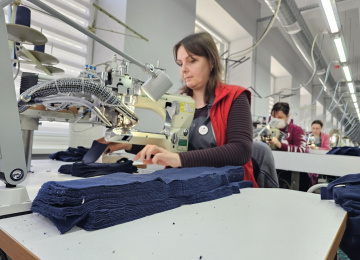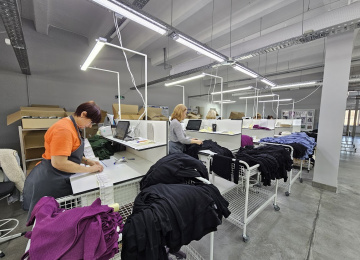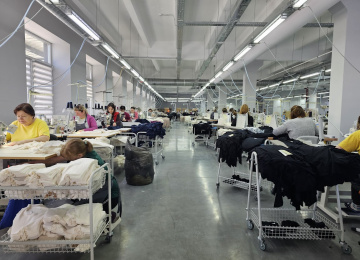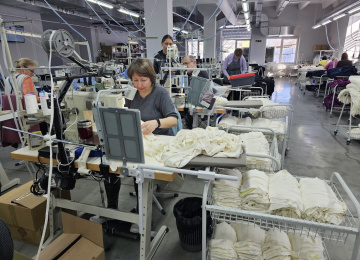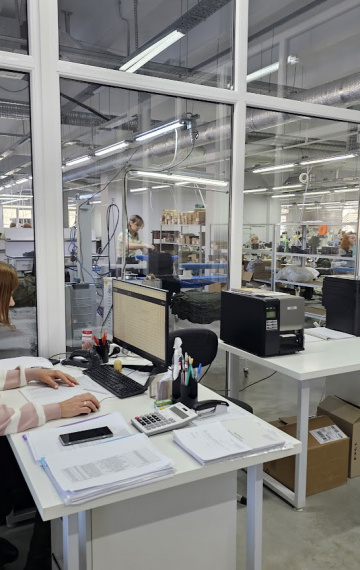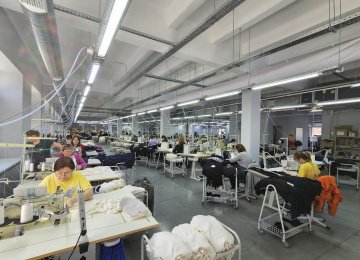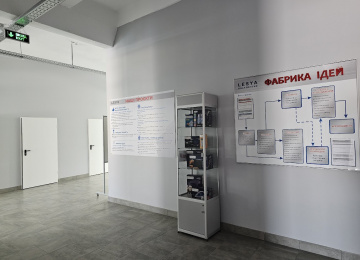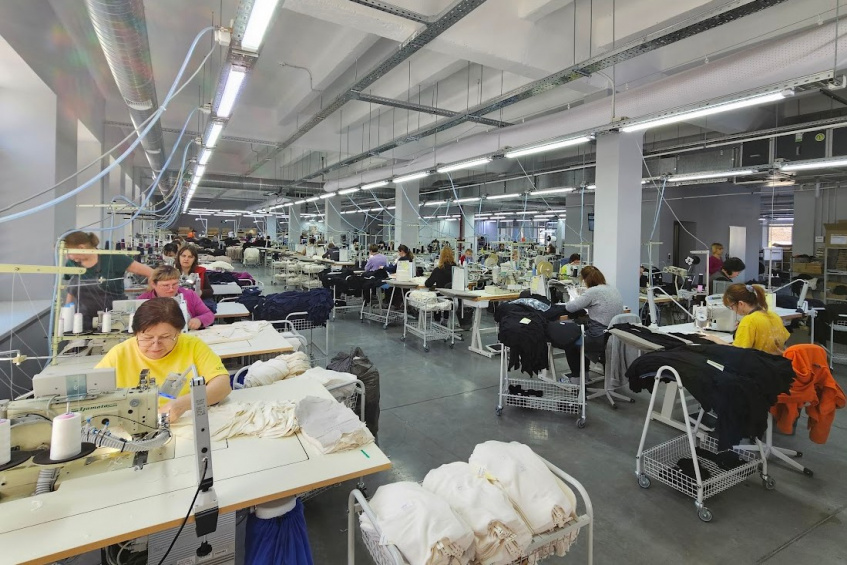
Ukraine is home to hundreds of textile manufacturers — from modest ateliers to large-scale factories exporting to the EU. For years, the industry has clothed both domestic and European markets, producing everything from durable workwear to delicate natural-fibre lingerie.
One such manufacturer is Lesya, a garment factory in Zhytomyr with a 60-year legacy, a workforce of 500, and long-standing partnerships with clients in Germany and Denmark. Once a stable, high-capacity enterprise, the company faced its greatest test when war erupted.
A Factory at War
The Russian invasion on 24 February 2022 brought chaos to Ukrainian life — and industry. For Lesya, the early days of war were marked by halted production, anxious partners, and staff unable to reach the factory floor.
“We didn’t know what would happen tomorrow,” recalls Mykola Sychenko, Chairman of the Supervisory Board. “Some employees stayed home, some clients hesitated — it felt like everything could fall apart overnight.”
Yet, instead of shutting down, the team pivoted. With Italian suit fabric stockpiled for former clients, the factory began producing tactical gear for territorial defence forces. Trousers once destined for high-end menswear were now stitched into military vests.
“It didn’t feel like production,” Sychenko says. “It felt like survival. Our team just wanted to stay together and contribute — even if it meant sewing ‘Armani’ tactical vests.”
The factory’s cash reserves lasted only two months.
A Danish Opportunity
Recovery began in May 2022, albeit slowly. Supply chains had collapsed. But months earlier, Danish brand Dilling — a specialist in sustainable merino wool underwear — had approached Lesya, seeking a new production partner after ending its operations in Belarus.
By July, a partnership was underway. But the shift to merino wool required significant adaptation: new machinery, precision processes, and rigorous quality control. Sustainability was also front and centre, demanding low waste, energy efficiency, and ethically sourced materials.
“We had the team, we had the experience — but we didn’t have the right equipment,” Sychenko says. “So we started looking for financing to help us retool.”
The solution came via a €340,000 loan from the European Investment Bank (EIB) under the EU4Business initiative. With support from Ukreximbank, one of the partner banks of the EIB in Ukraine, Lesya modernised its production line and, in August 2023, opened a new facility in Zhytomyr. The first shipments to Denmark soon followed.
“With contracts in euros, the EU-backed loan gave us predictability and confidence,” Sychenko adds.
Not Just Survival — Growth
Lesya lost staff during the war — some fled abroad, others were unable to return. But the factory retained over 80% of its team, even during shutdowns.
Today, the factory is not only back in operation — it’s expanding. In 2025, it aims to create at least 100 new jobs for sustainable textile production and to launch a new joint venture, Novodan, with its Danish partners.
The venture will serve as a manufacturing hub for European brands seeking to relocate or diversify production to Ukraine, integrating sewing, logistics, quality control, and support services under one roof.
Lesya is also investing in green energy. Solar panels now provide 30% of its electricity, with the goal of meeting international gold-standard environmental certification.
A Blueprint for Resilience
Lesya’s story is more than a case of wartime perseverance. It is a vision for how Ukrainian industry can modernise, attract investment, and align with European markets — even under extraordinary pressure.
“We didn’t just survive — we evolved,” says Sychenko. “We found new partners, secured financing, and transformed our production. And above all — we stayed in Ukraine, and we kept working.”

